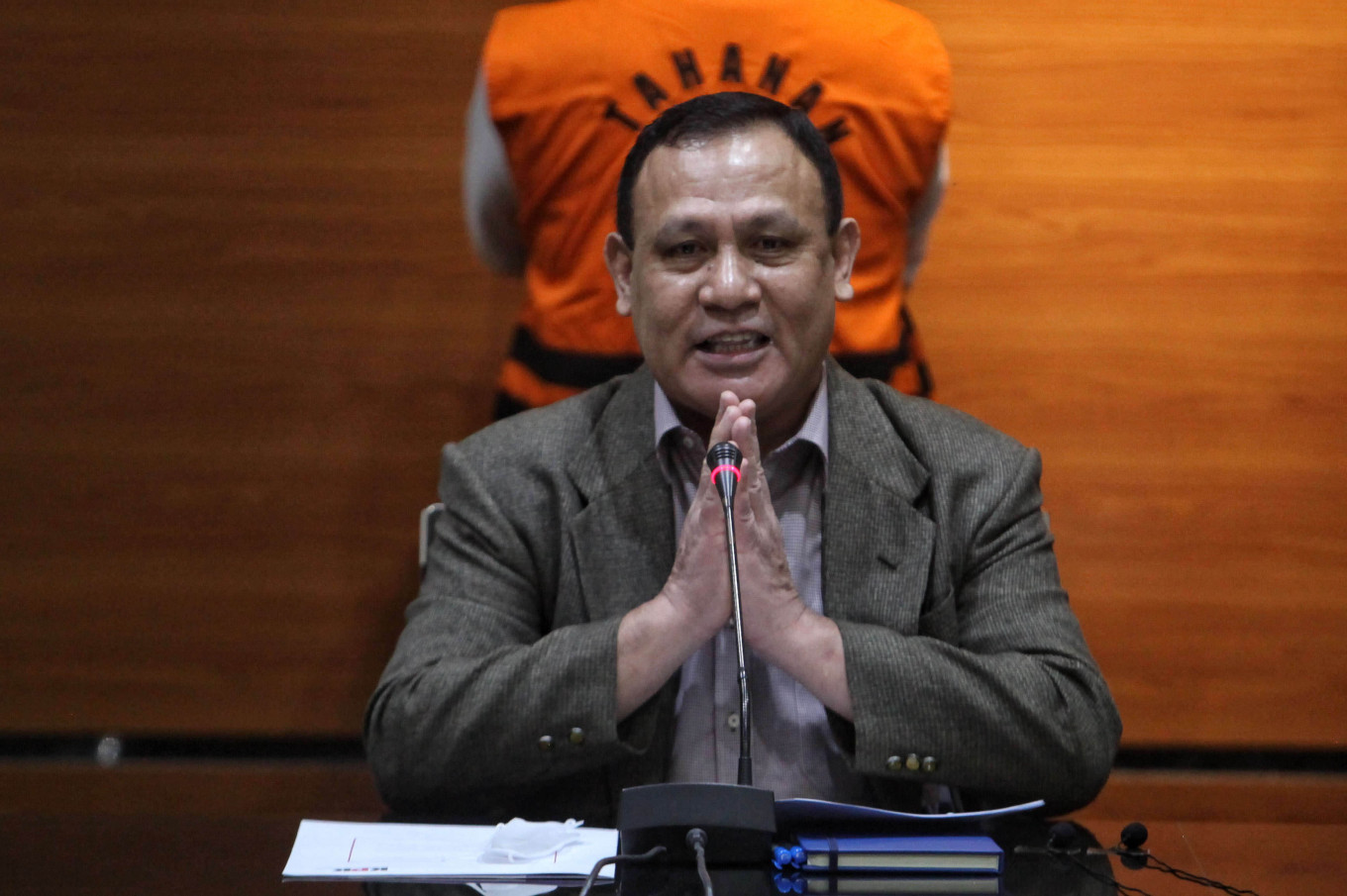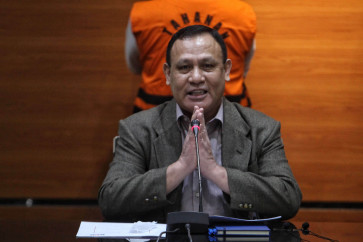Popular Reads
Top Results
Can't find what you're looking for?
View all search resultsPopular Reads
Top Results
Can't find what you're looking for?
View all search resultsAnalysis: KPK, TNI spat sheds light on military impunity
Change text size
Gift Premium Articles
to Anyone
 KPK Chairman Firli Bahuri shows evidence of suspected bribery and suspects at a press conference to determine the suspect in a suspected corruption case, the construction of the Cimahi Kasih Bunda Hospital building, at the KPK Building, Jakarta, Saturday (28/11/2020). The KPK officially named and detained two suspects in the case, namely Cimahi Mayor Ajay Muhammad Priatna and Commissioner of the Kasih Bunda Hospital, Hutama Yonathan. (JP/Seto Wardhana)
KPK Chairman Firli Bahuri shows evidence of suspected bribery and suspects at a press conference to determine the suspect in a suspected corruption case, the construction of the Cimahi Kasih Bunda Hospital building, at the KPK Building, Jakarta, Saturday (28/11/2020). The KPK officially named and detained two suspects in the case, namely Cimahi Mayor Ajay Muhammad Priatna and Commissioner of the Kasih Bunda Hospital, Hutama Yonathan. (JP/Seto Wardhana)
T
he resistance of the Indonesian Military (TNI) toward the arrest of its high-ranking officer and his aide by the Corruption Eradication Commission (KPK) in relation to an alleged graft case at the National Search and Rescue Agency (Basarnas) has reignited a debate over the military’s long-standing culture of impunity.
KPK investigators named five suspects in the graft case, including Basarnas head Air Vice Marshal Henri Alfiandi and the agency’s administrative coordinator Lt. Col. Afri Budi Cahyanto. Henri is suspected of accepting up to Rp 88.3 billion (US$5.9 million) in bribes related to procurement in the agency between 2021 and 2023, with Afri acting as an intermediary. The remaining suspects are businesspeople, namely president director of printing company PT Intertekno Grafika Sejati, Marilya; executive commissioner of printing company PT Multi Grafika Cipta Sejati Mulsunadi Gunawan and spare-parts supply company PT Kindah Abadi Utama president director Roni Aidil.
KPK chairman Firli Bahuri insisted the TNI was aware of the KPK investigation that led to the high-profile arrest. But one of the KPK’s deputy chairs, Johanis Tanak, publicly apologized for the arrest, which he said was a mistake committed by KPK investigators. Johanis made the statement after Military Police chief Air Rear Marshal Agung Handoko and several high-ranking military officers, clad in camouflage outfits, came to the KPK building.
According to Agung, the KPK had overstepped its jurisdiction by arresting and naming active military personnel as suspects. The TNI maintains that according to Law No. 31/1997 concerning military justice, their institution is solely responsible for handling criminal cases involving their personnel.
Following the apology, Agung expressed the TNI’s intention to work with the KPK on the Basarnas case on Monday. Since then, the KPK said it would continue its investigation into the civilian suspects in the case while leaving the TNI suspects in the hands of the military police.
KPK deputy chairman Alexander Marwata said the antigraft body would meet with TNI commander Adm. Yudo Margono to discuss forming a joint team between the KPK and military police to minimize disparities that may come with having separate investigations. Coordinating Political, Legal and Security Affairs Minister Mahfud MD also encouraged the same.
A number of civil society groups, however, have called on the antigraft body to carry on with its investigation into Henri and Afri independently. This is because the 2019 KPK Law stipulates that the institution is authorized to coordinate corruption investigations regardless of whether those implicated are civilians or soldiers.

















